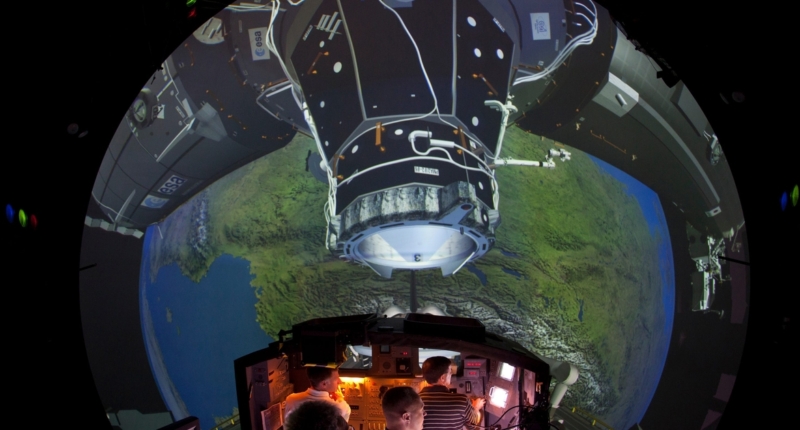The aerospace industry in Texas is leading the way in the US and has been ranked the most attractive state for the industry overall and in economic metrics. However, the industry needs to do more to ensure a diverse workforce, with not enough women or people from underrepresented groups graduating from engineering programs. Space Workforce 2030 is a pledge to boost the representation of women and professionals from underrepresented populations in both technical and senior leadership positions, with several Texas companies being inaugural signers of this pledge. Inclusion is crucial to maximizing the potential of the future space economy, and Texas is well positioned to lead the way in cultivating a more diverse and inclusive space industry.
The Importance of Diversity in the Space Industry
The space industry is growing rapidly, and Texas is at the forefront of this expansion. With the state being home to NASA’s Johnson Space Center and many leading aerospace companies, Texas is the most attractive state for the aerospace industry according to a recent PwC aerospace industry report. However, in order for the industry to reach its full potential, it must embrace diversity and inclusivity.
Currently, not enough women or people from underrepresented groups are graduating from the nation’s college engineering programs. This results in large segments of the population being excluded from the talent pool of the industry. Moreover, many of these groups fall out of the talent pipeline in grades K-12 due to the lack of quality access to science, technology, engineering, and mathematics (STEM) opportunities.
If the space industry wants to reach its full potential and become a truly spacefaring society, it must embrace diversity and inclusivity. This means making space accessible to all and ensuring that the industry benefits from the talent and skills that all segments of the population have to offer.
Diversity and inclusivity were highlighted at this year’s SXSW event in Austin, Texas. The event featured space-themed programming and one of the premier gatherings dedicated to diversity, representation, and the creative exchange of ideas. This underscores how important representation is to maximizing the potential of the future space economy.
To address the systemic shortcoming in workforce diversity, last April’s national Space Symposium saw 25 CEOs and senior executives sign the Space Workforce 2030 pledge to boost the representation of women and professionals from underrepresented populations in both technical and senior leadership positions. This commitment shows that the industry is aware of the importance of diversity and inclusivity and is taking steps to address the issue.
In conclusion, a diverse workforce is key to the success of the space industry. Texas, already synonymous with space, can take another giant leap towards a robust, representative space economy and society by embracing diversity and inclusivity. By doing so, the industry can access the talent and skills of all segments of the population, enabling it to reach its full potential and become a truly spacefaring society.
Space Workforce 2030: The Importance of Diversity in the Space Industry
The success of the space industry requires an industry-wide effort to invest in K-12 STEM programs and bring the percentage of women and people from underrepresented groups graduating with aerospace engineering degrees in line with overall engineering graduation rates. Space Workforce 2030 is a pledge crafted to ensure accountability and transparency over time, with several Texas companies being inaugural signers of this pledge.
The pledge represents the entire U.S. space enterprise, including nonprofits, government, and private companies, from startups to major contractors. Companies that have committed to the pledge promise to share aggregated technical workforce data annually at Space Symposium through 2030, with the first year’s data set to be published in April. While this is an excellent start, the challenge of diversity in the space industry will not be solved overnight. More companies need to recognize the importance of this cause and join this pledge.
Inclusion is crucial in the space industry, as President Kennedy emphasized in his moonshot speech. He said, “We can help make the world safe for diversity. For, in the final analysis, our most basic common link is that we all inhabit this small planet.” Everyone who dreams of space deserves an opportunity to shape its future, and the space industry must commit to cultivating a more diverse and representative future workforce.
As Texas continues to advance U.S. space leadership, its companies can lead by example in embracing diversity and inclusivity. With several Texas companies already committing to the Space Workforce 2030 pledge, Texas is well positioned to be at the forefront of this crucial effort to create a more diverse and inclusive space industry.
Don’t miss interesting posts on Famousbio
